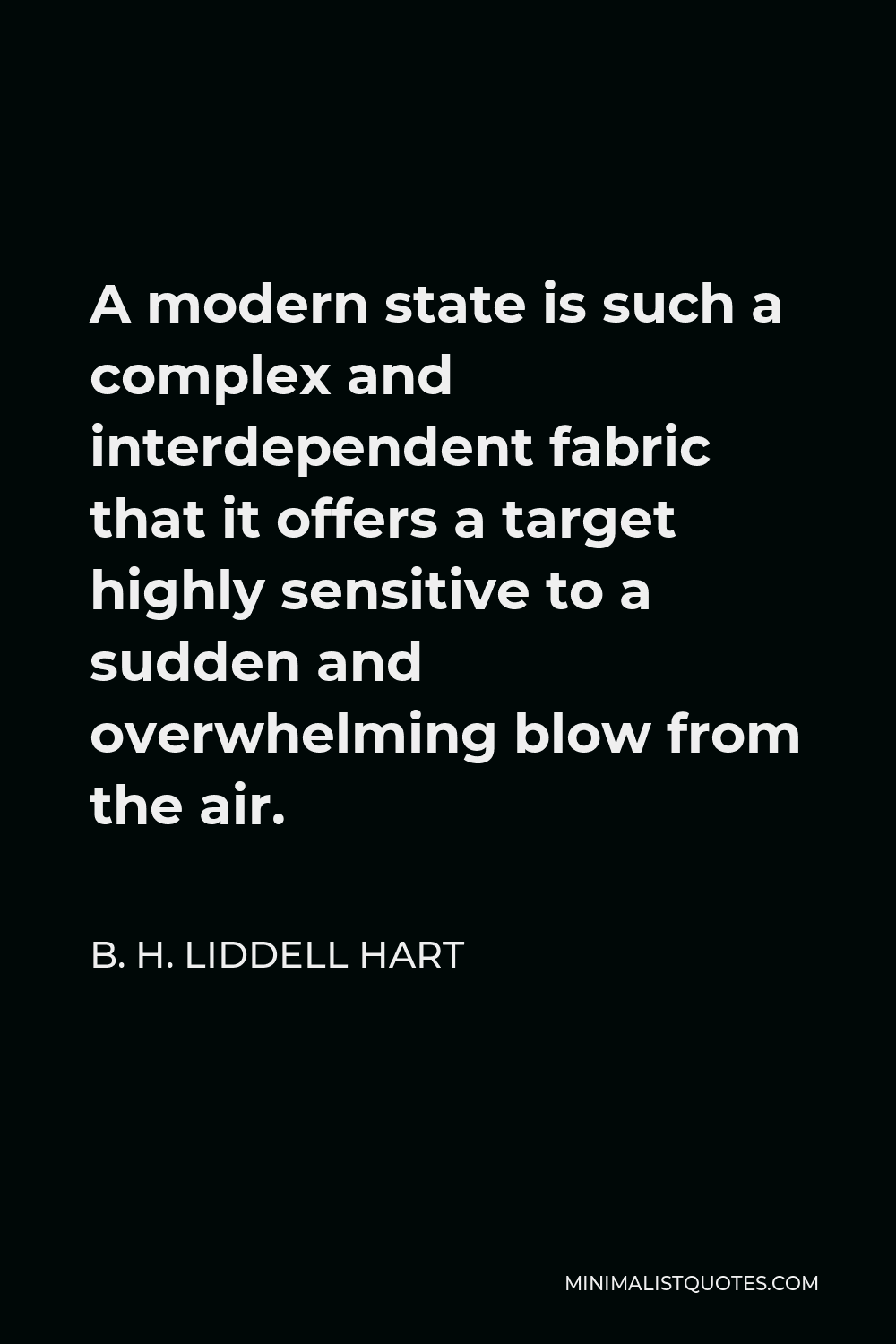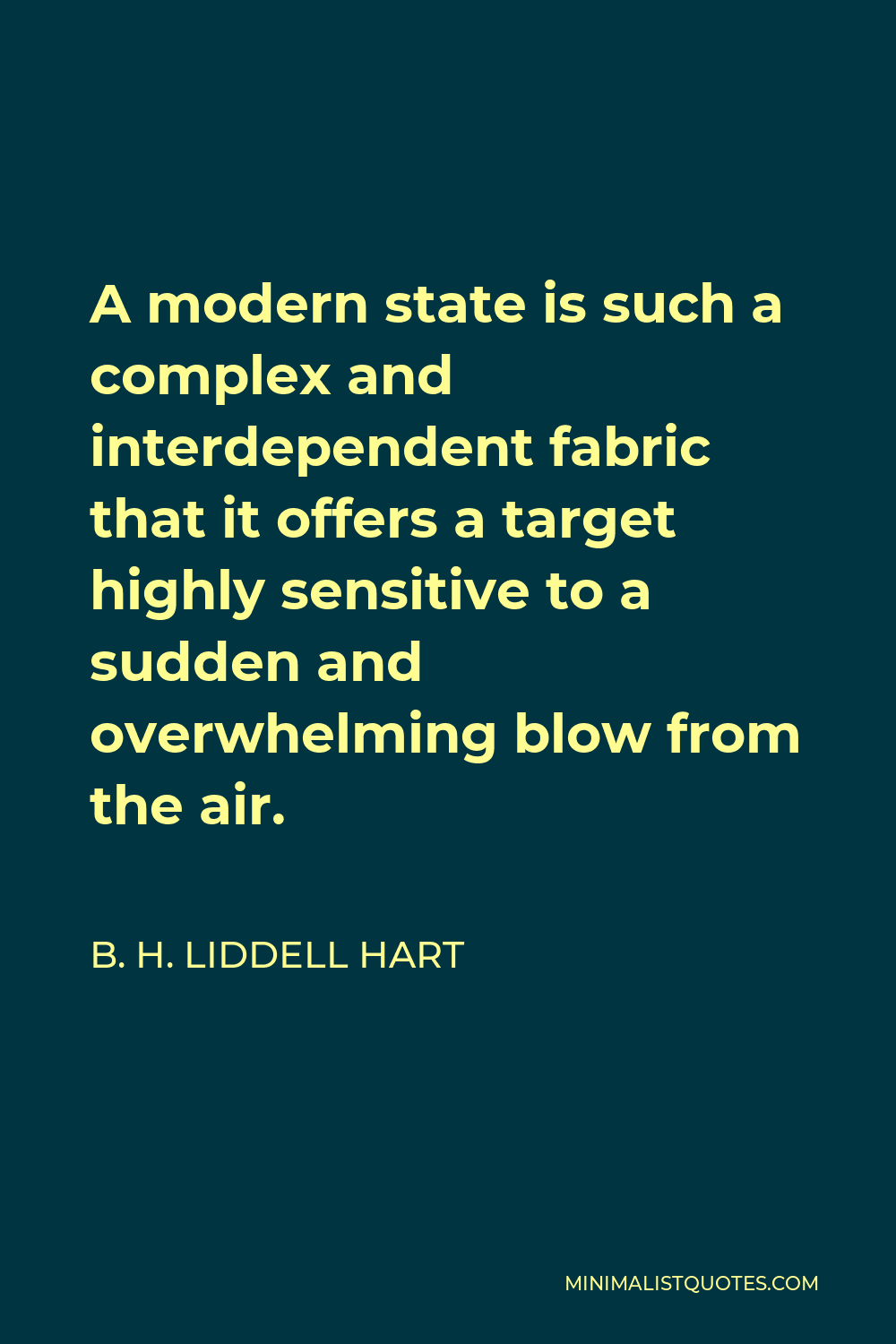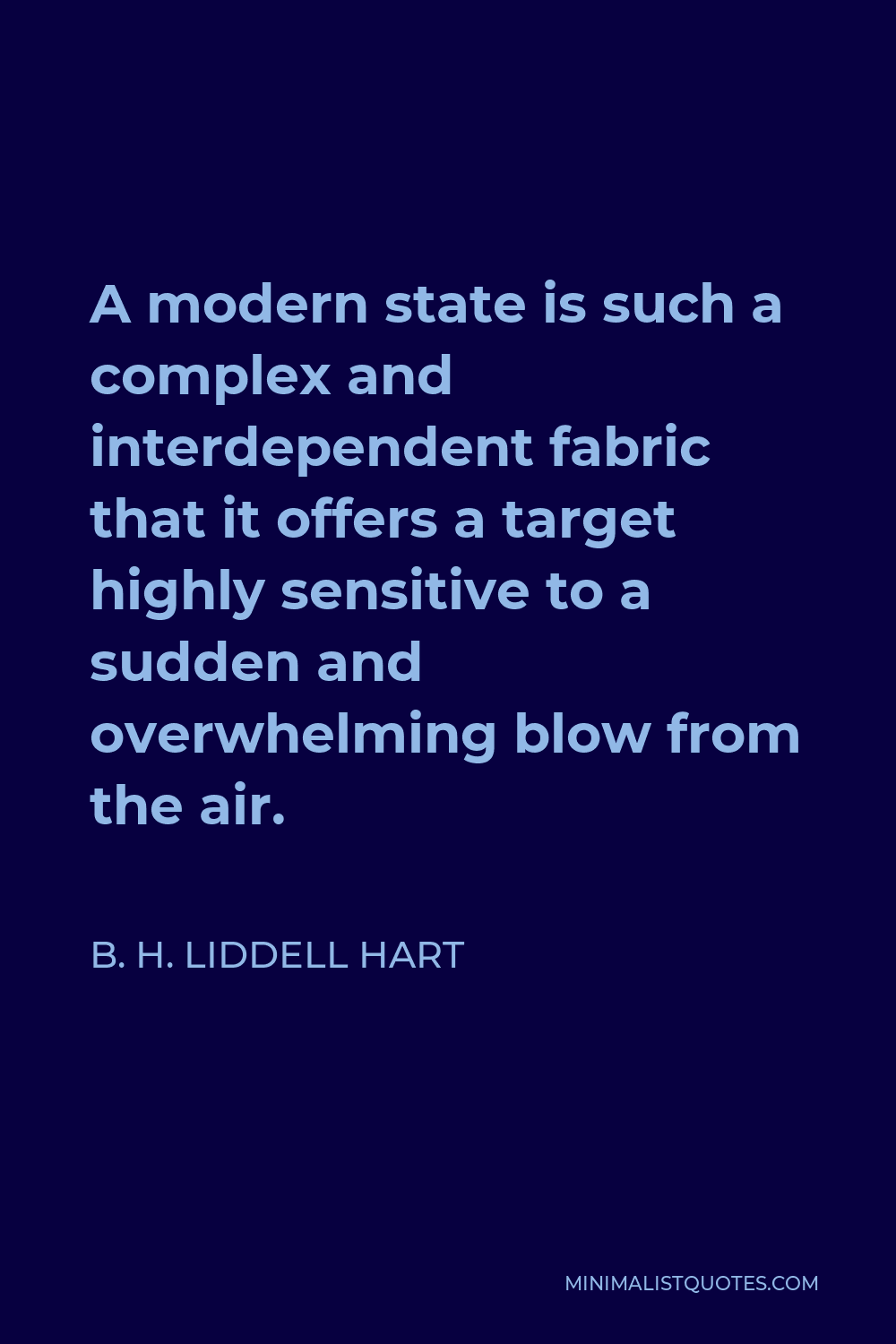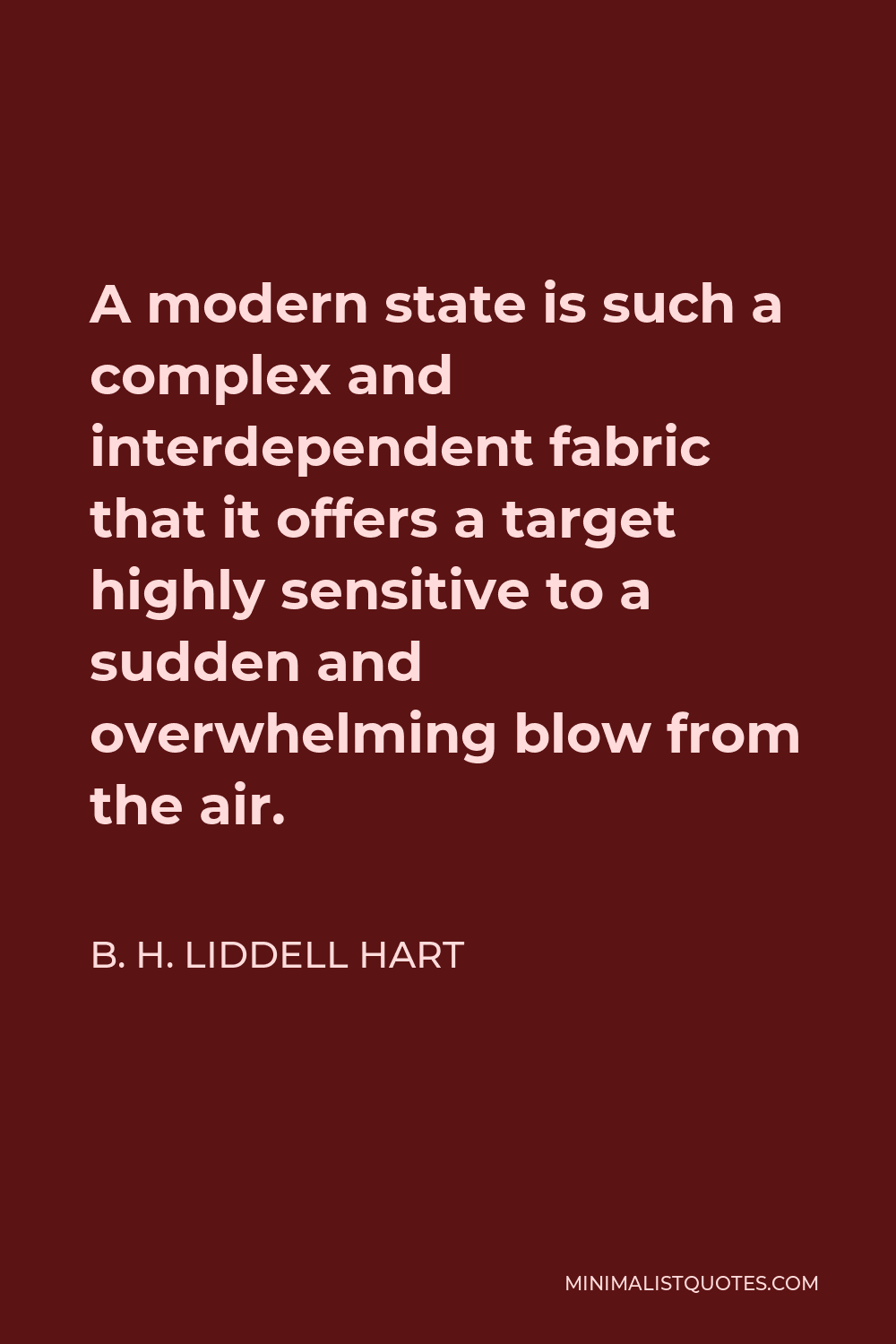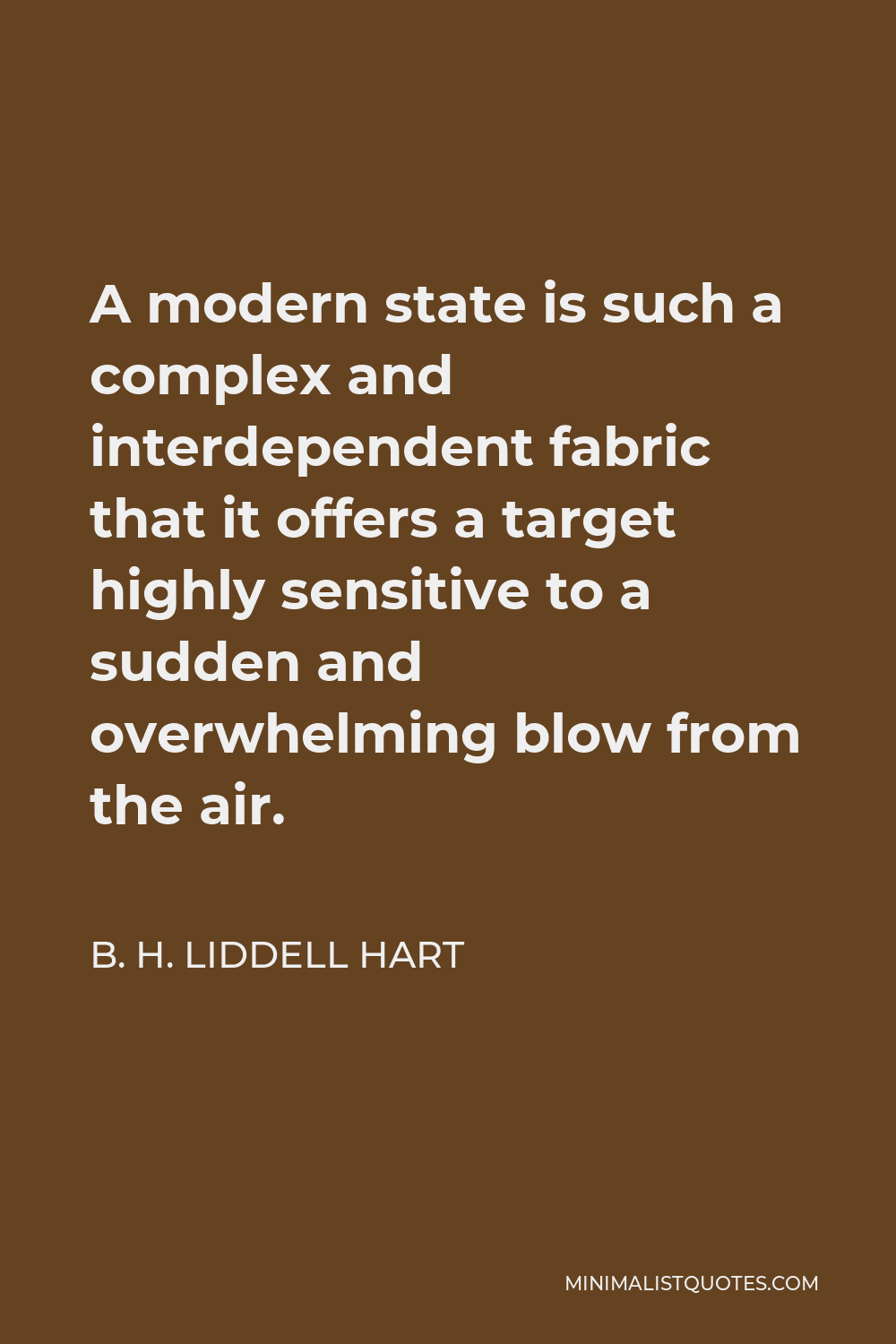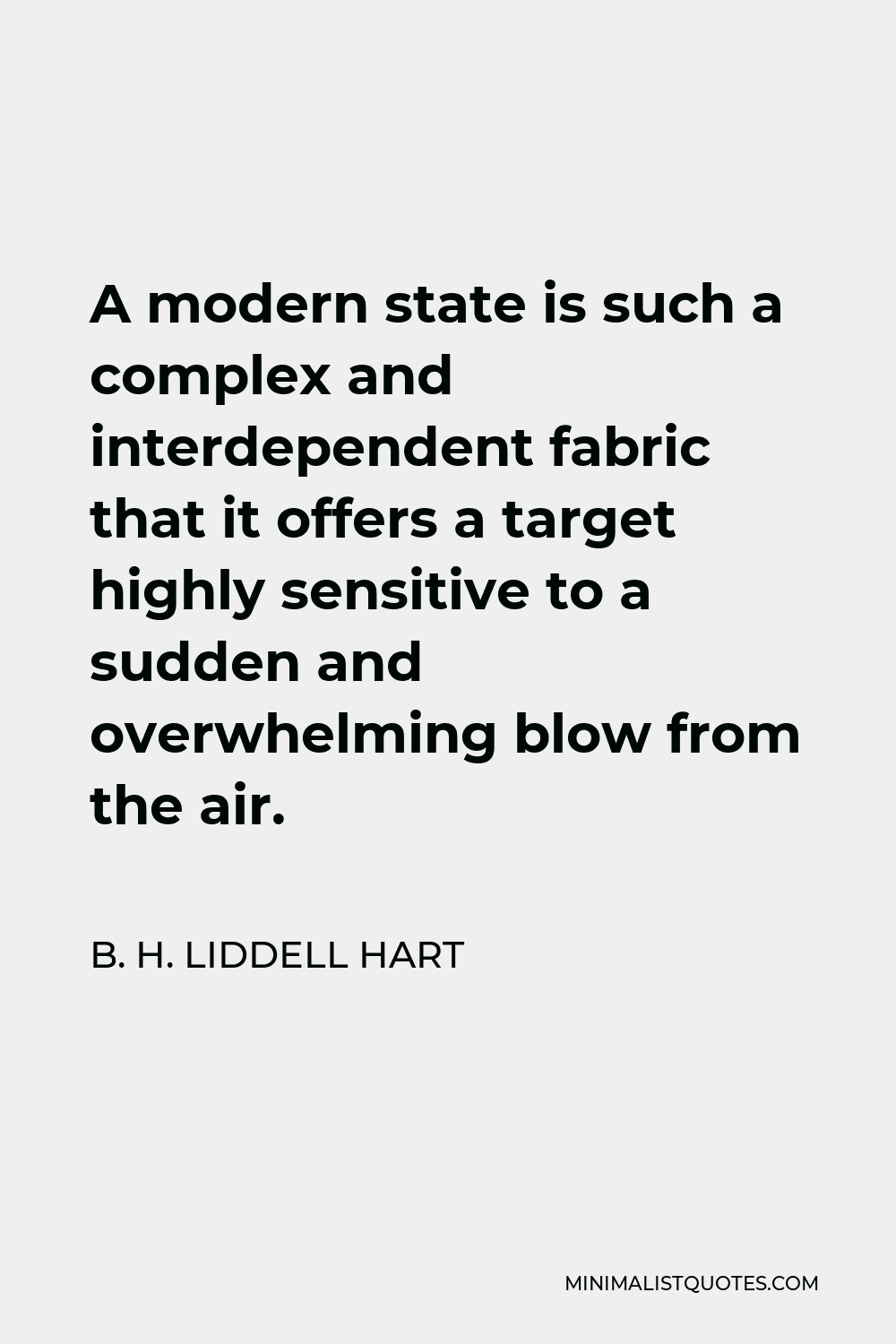If you want peace, understand war.
B. H. LIDDELL HARTA modern state is such a complex and interdependent fabric that it offers a target highly sensitive to a sudden and overwhelming blow from the air.
More B. H. Liddell Hart Quotes
-





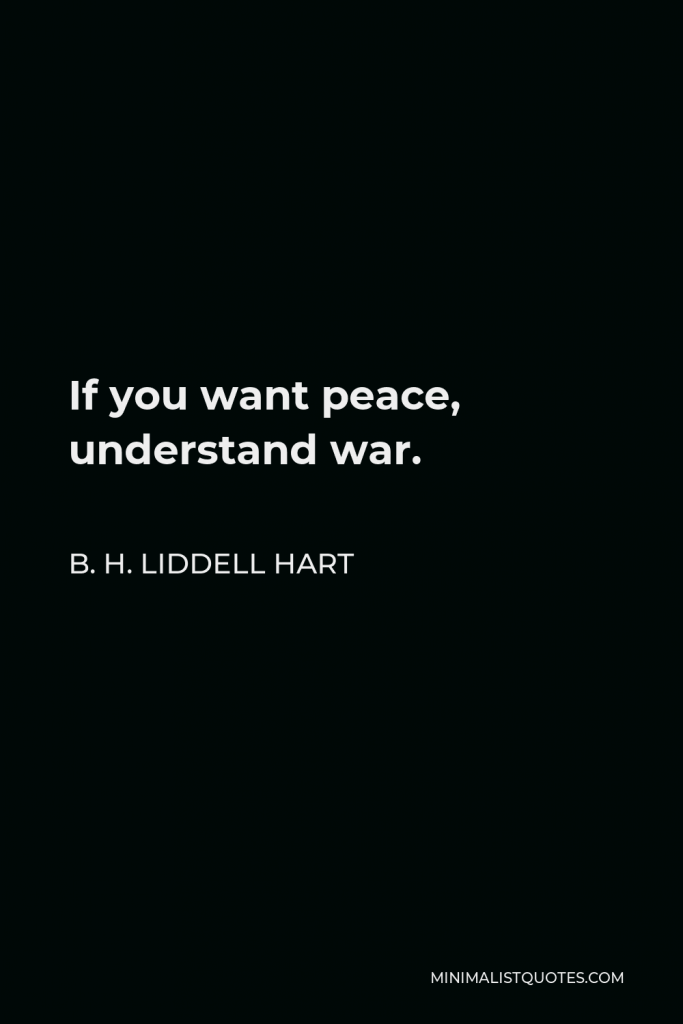

-





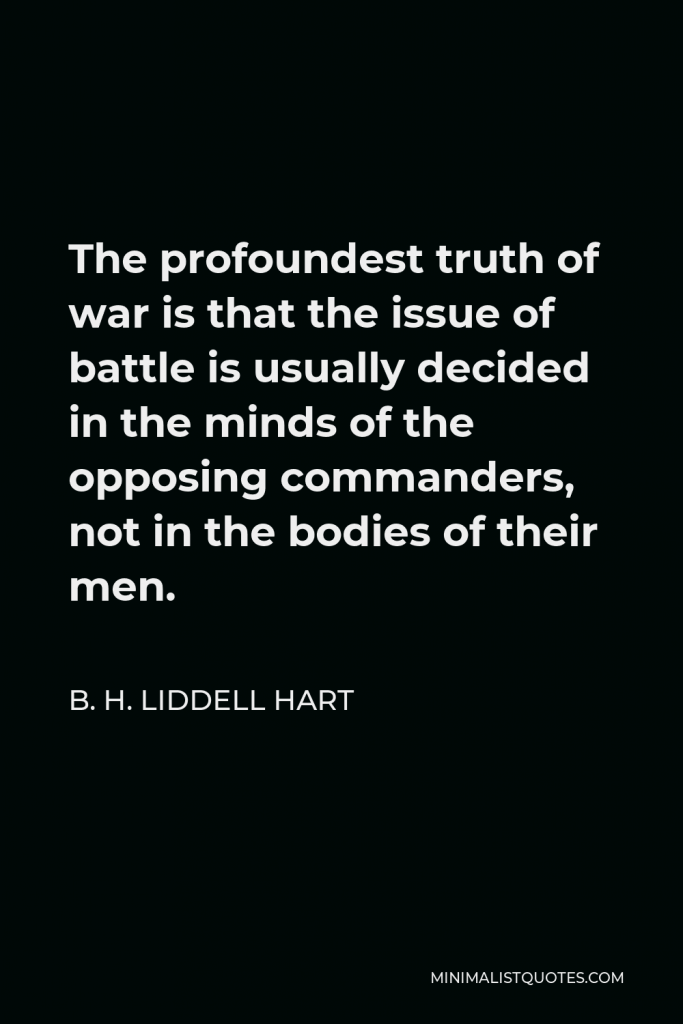

The profoundest truth of war is that the issue of battle is usually decided in the minds of the opposing commanders, not in the bodies of their men.
B. H. LIDDELL HART -





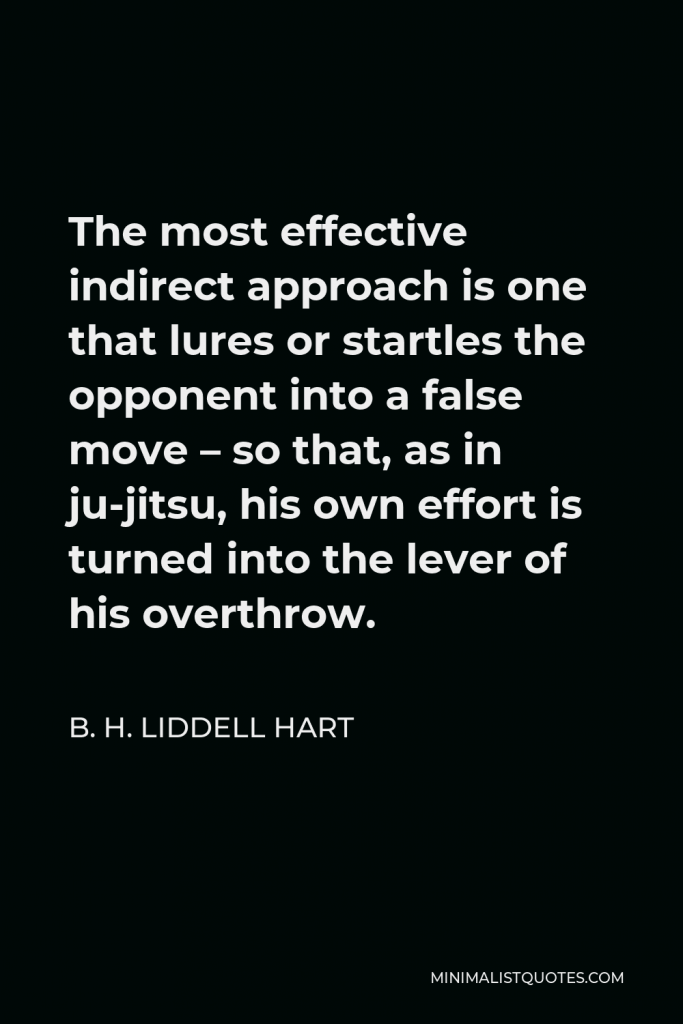

The most effective indirect approach is one that lures or startles the opponent into a false move – so that, as in ju-jitsu, his own effort is turned into the lever of his overthrow.
B. H. LIDDELL HART -





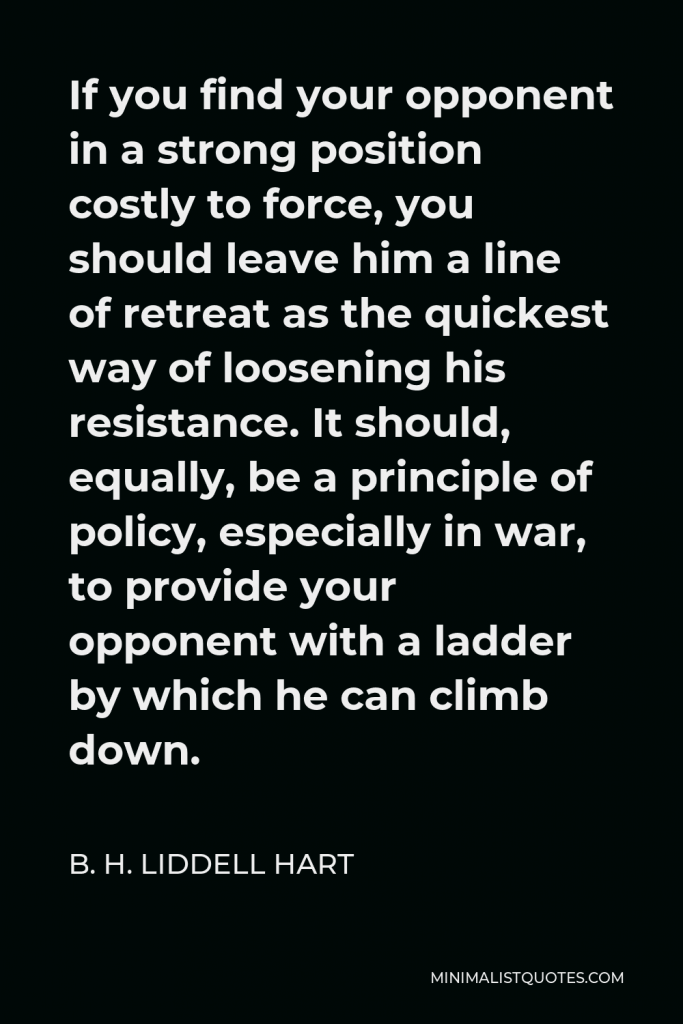

If you find your opponent in a strong position costly to force, you should leave him a line of retreat as the quickest way of loosening his resistance. It should, equally, be a principle of policy, especially in war, to provide your opponent with a ladder by which he can climb down.
B. H. LIDDELL HART -





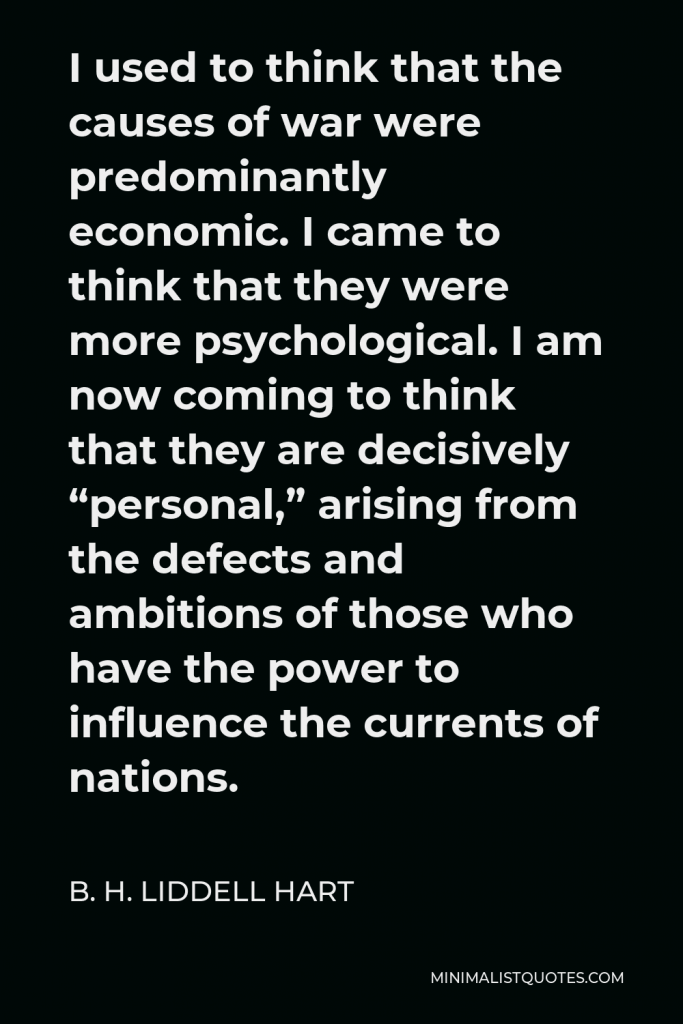

I used to think that the causes of war were predominantly economic. I came to think that they were more psychological. I am now coming to think that they are decisively “personal,” arising from the defects and ambitions of those who have the power to influence the currents of nations.
B. H. LIDDELL HART -







The practical value of history is to throw the film of the past through the material projector of the present on to the screen of the future.
B. H. LIDDELL HART -





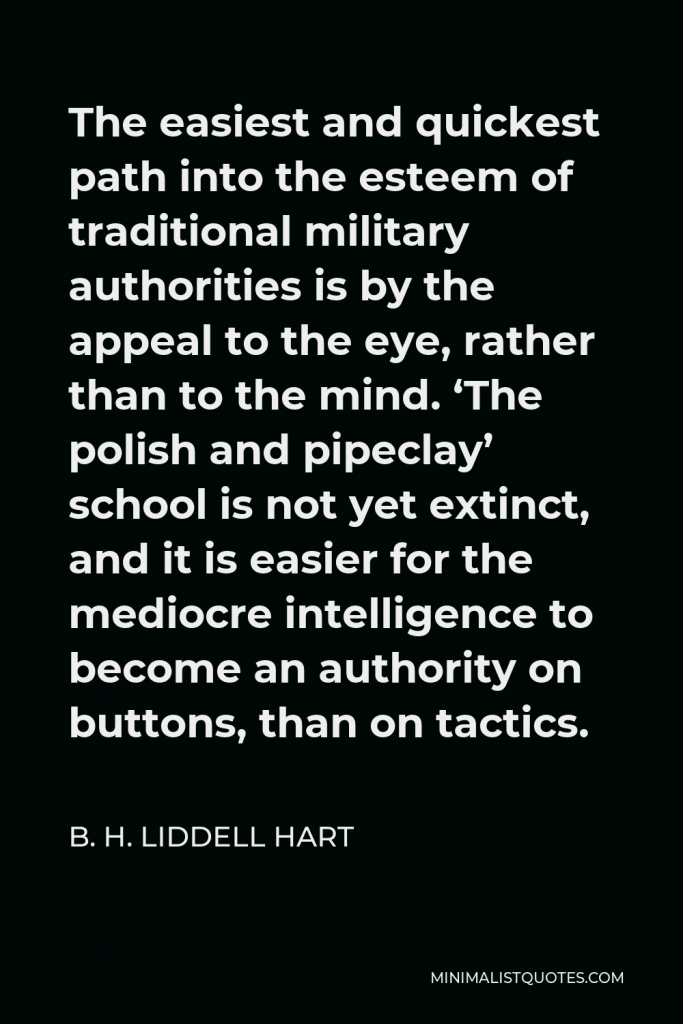

The easiest and quickest path into the esteem of traditional military authorities is by the appeal to the eye, rather than to the mind. ‘The polish and pipeclay’ school is not yet extinct, and it is easier for the mediocre intelligence to become an authority on buttons, than on tactics.
B. H. LIDDELL HART -





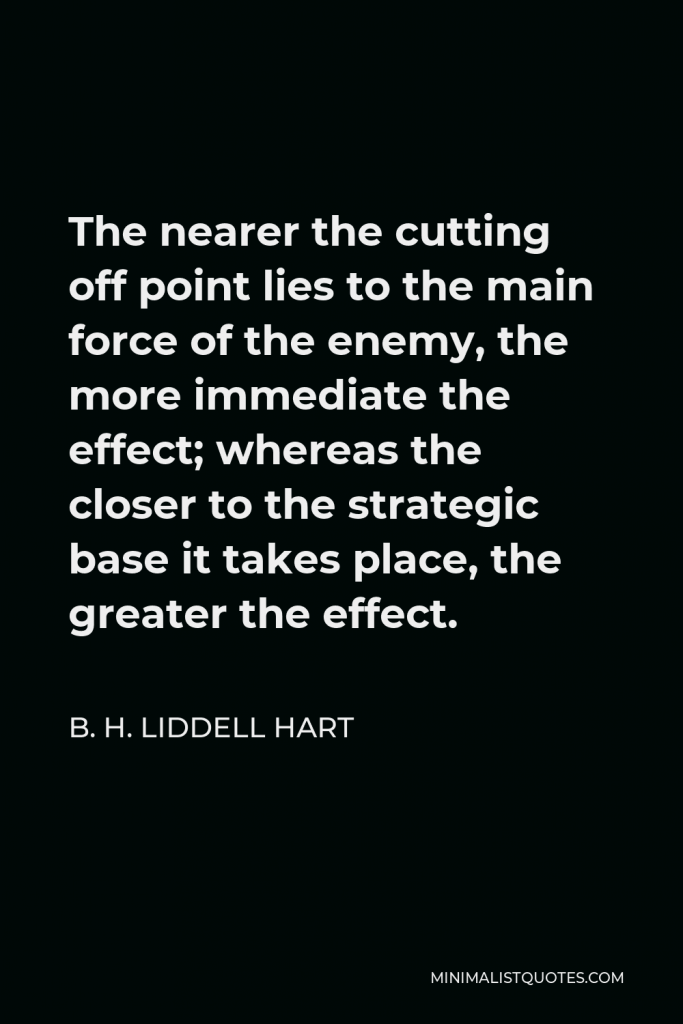

The nearer the cutting off point lies to the main force of the enemy, the more immediate the effect; whereas the closer to the strategic base it takes place, the greater the effect.
B. H. LIDDELL HART -





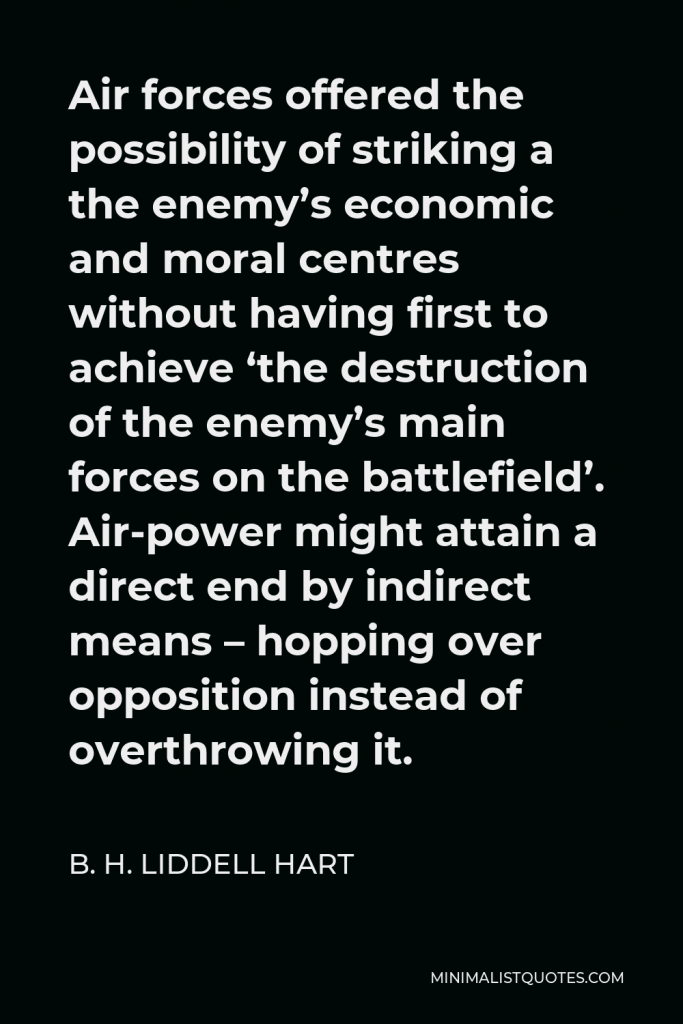

Air forces offered the possibility of striking a the enemy’s economic and moral centres without having first to achieve ‘the destruction of the enemy’s main forces on the battlefield’. Air-power might attain a direct end by indirect means – hopping over opposition instead of overthrowing it.
B. H. LIDDELL HART -





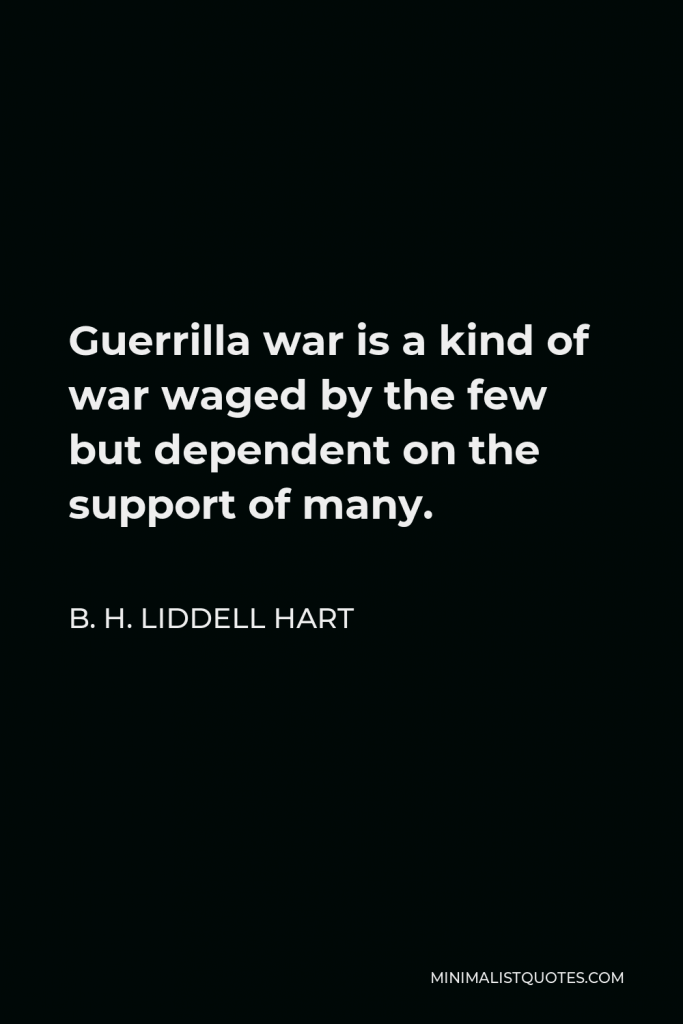

Guerrilla war is a kind of war waged by the few but dependent on the support of many.
B. H. LIDDELL HART -





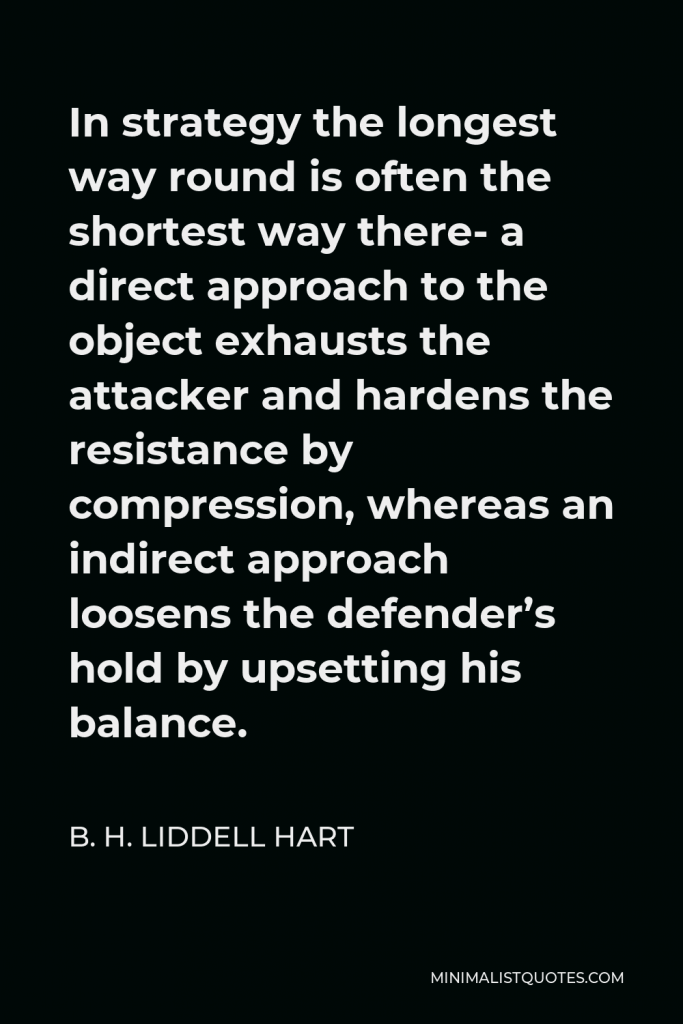

In strategy the longest way round is often the shortest way there- a direct approach to the object exhausts the attacker and hardens the resistance by compression, whereas an indirect approach loosens the defender’s hold by upsetting his balance.
B. H. LIDDELL HART -





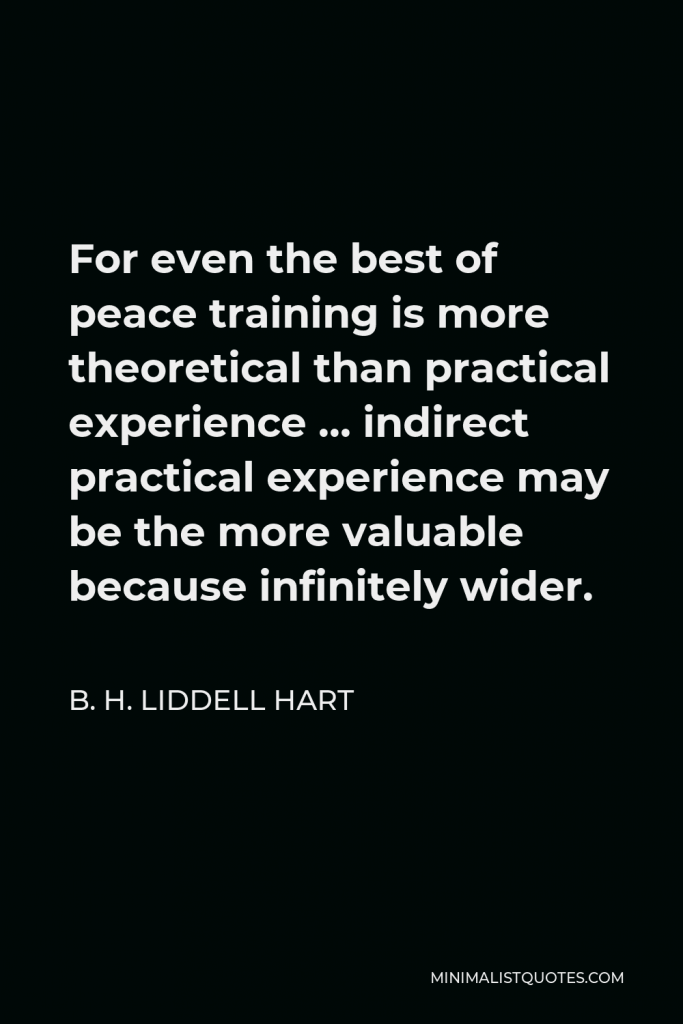

For even the best of peace training is more theoretical than practical experience … indirect practical experience may be the more valuable because infinitely wider.
B. H. LIDDELL HART -





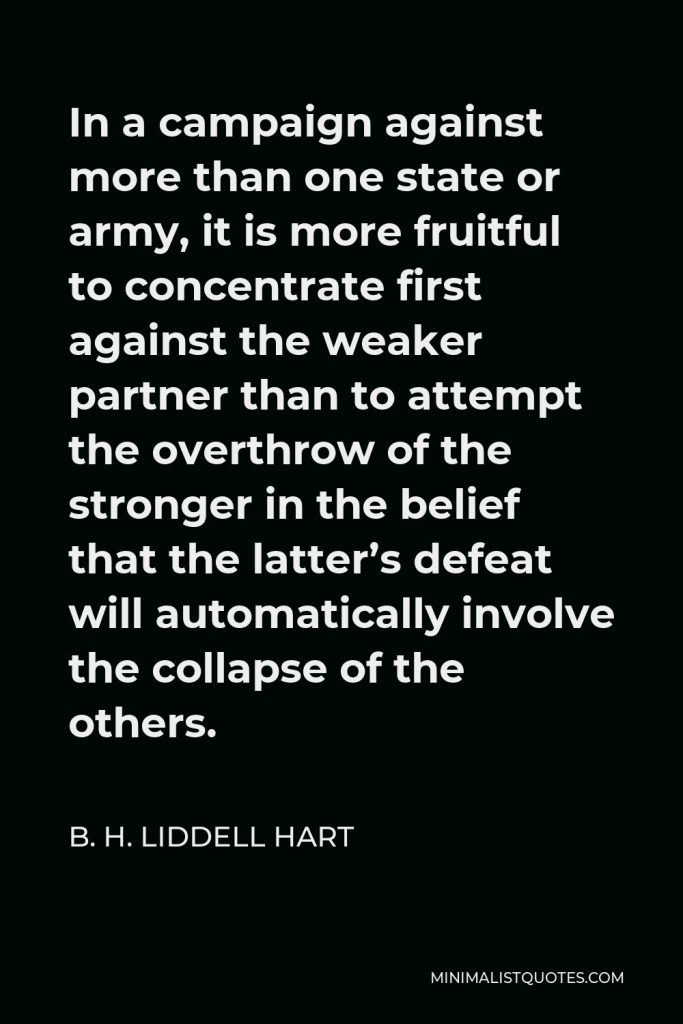

In a campaign against more than one state or army, it is more fruitful to concentrate first against the weaker partner than to attempt the overthrow of the stronger in the belief that the latter’s defeat will automatically involve the collapse of the others.
B. H. LIDDELL HART -





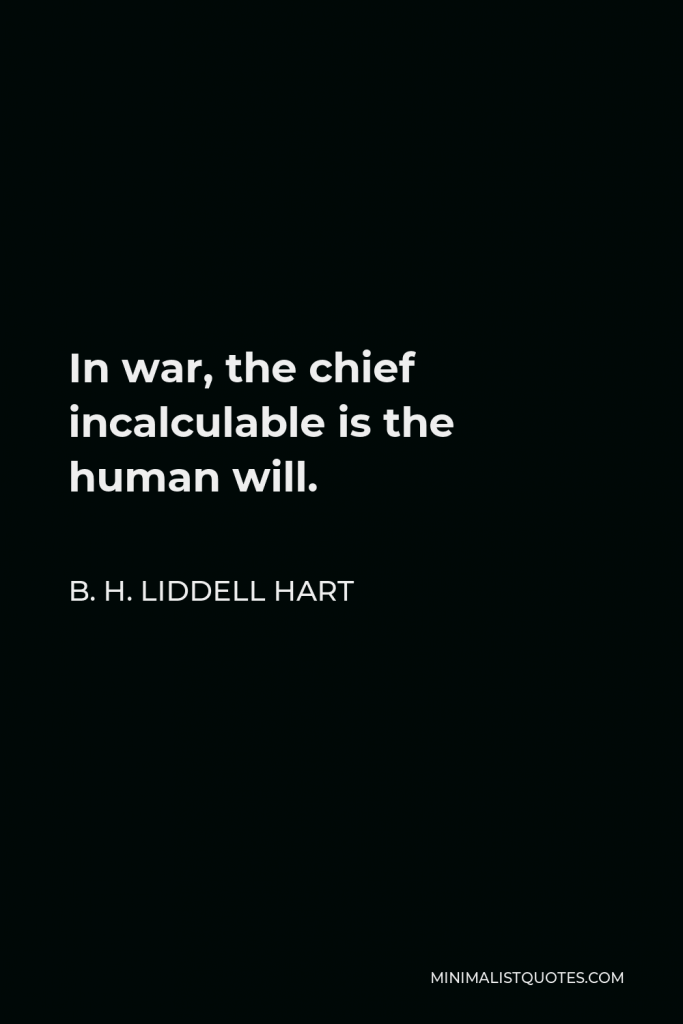

In war, the chief incalculable is the human will.
B. H. LIDDELL HART -







Ensure that both plan and dispositions are flexible, adaptable to circumstances. Your plan should foresee and provide for a next step in case of success or failure.
B. H. LIDDELL HART -





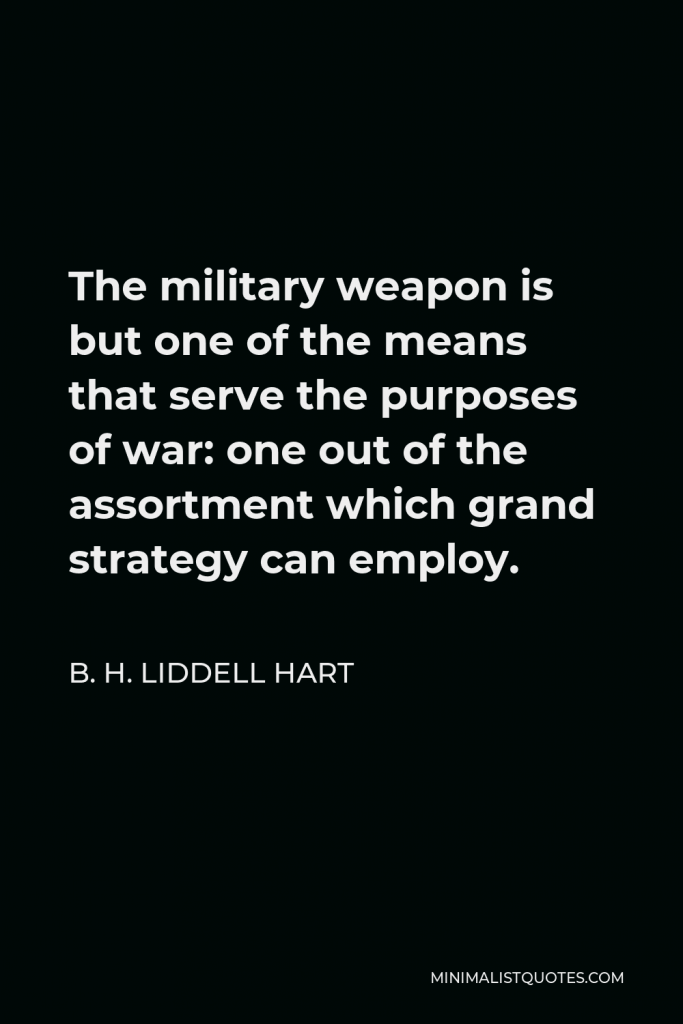

The military weapon is but one of the means that serve the purposes of war: one out of the assortment which grand strategy can employ.
B. H. LIDDELL HART
